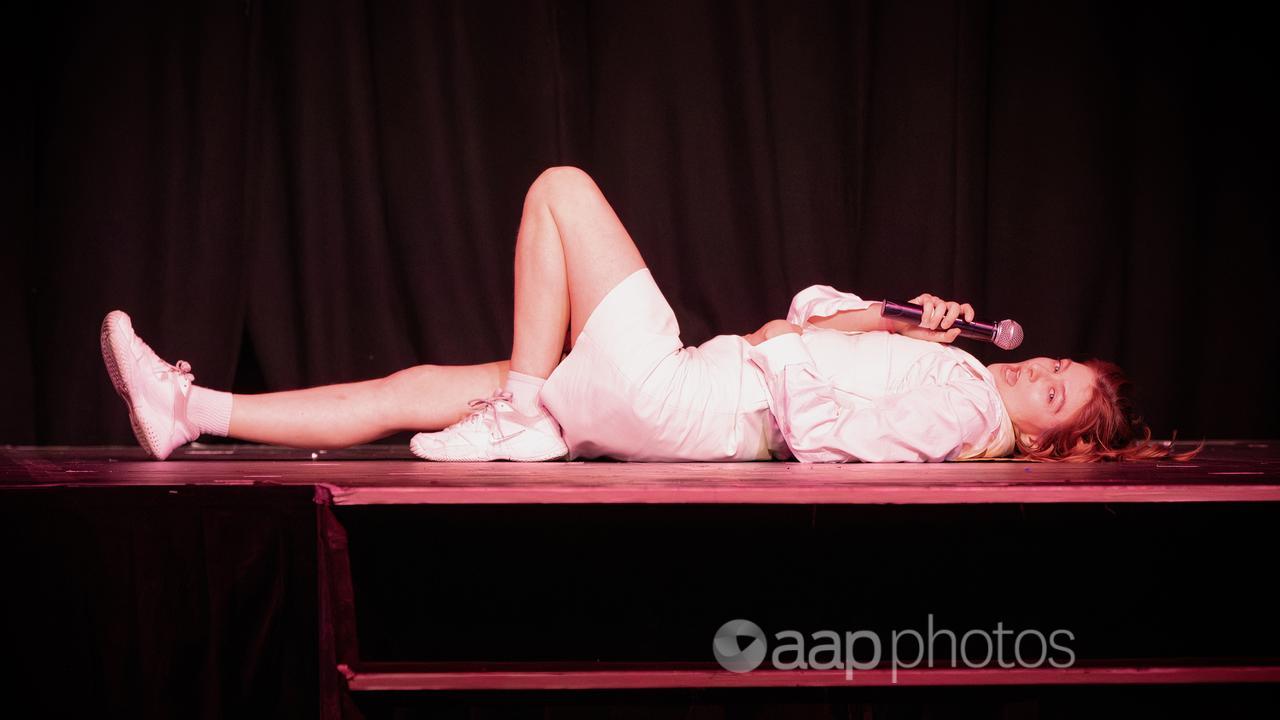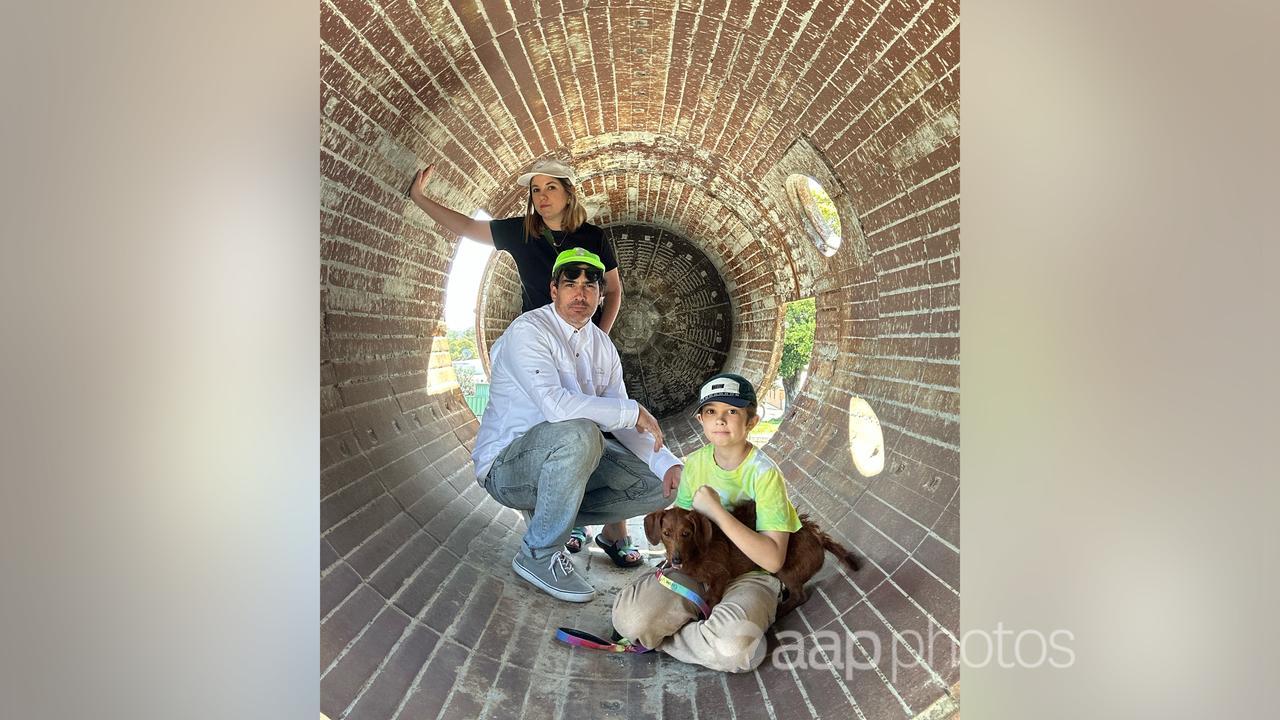Next to a church service notice, a write-up of a local bowls competition and an advertisement for rabbit traps, a newspaper column breathlessly describes a country debutante ball.
“The murmur soon went round, ‘here they come’,” The Mudgee Guardian reported of the Kandos ball in June 1947.
“What a lovely sight it was as the young ladies, spaced about eight yards apart, entered the hall led by the two pretty little flower girls.”
Nearly 80 years on from that chaste affair in which women made their social debut, performance artist Georgia Banks will host a debutante ball with a twist in the same central western NSW village.
Banks will turn the tradition on its head, playing on the concept of “coming out” to society.
The ball, part of the four-day rural contemporary arts festival Cementa, invites guests to come along with a same-sex date.
“It’s a key rite of passage in regional Australia, I’m using it in a fun way to create a safe space for queer people,” Banks told AAP.
“Deb balls are literally called coming out balls, how could I not, am I just going to leave that hanging?”
To prepare for the ball, Banks collaborated with young people in Kandos and drew on her experience growing up in remote NSW towns like Cobar and Broken Hill.
“I realised I was queer in regional Australia, I came out in regional Australia and I was really interested in learning what it’s like for queer people in regional Australia now.”
People of all backgrounds are welcome at the dance on Friday night, with plenty of straight men and their mates expressing interest.
“Friendships already have a level of intimacy and it’s nice for people to have an opportunity to go on a date with a friend,” Banks said.

The sixth Cementa festival will feature works from more than 50 artists across performance, installation, sound, video, photography and sculpture in local spaces like community halls, churches and shops.
Cementa was established by an artists’ collective soon after the cement works in Kandos closed in 2011, as the small town pondered its future.
Artists must visit Kandos and collaborate with locals ahead of the event, rather than use the town merely as a backdrop, festival director Alex Wisser said.
“The artists are pulled out of their own bubbles in the city and asked to consider another place,” Mr Wisser said.
“When artists come up and do crazy and weird things, the townsfolk will let you know.
“It’s really healthy to hear those voices rather than dismissing them.”
When artist Danny Morse first visited Kandos he was drawn to the abandoned industrial ball mill, a 15-metre tube once used to crush cement.
Morse, a 2024 Archibald finalist whose body of sculptural work explores Australian nostalgia, will create a time warp.

Using lights and mirrors at both ends of the tube, the mill will become a portal to the future and the past.
“I wanted to do something that wasn’t coming in loud and screaming ‘this is what I do’,” Morse said.
“It uses the town and talks about the town’s history, accentuating it and adding to it.”
The Cementa Festival in Kandos runs from September 19 – 22




















